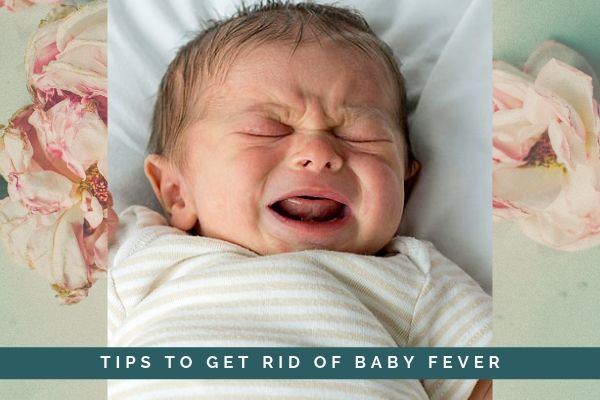Our body temperature will change during the course of the day. Your body temperature will be slightly lower when you are sleeping compared to when you are awake. The same goes for your baby’s temperature. A normal temperature, taken orally, is about 37 degrees Celsius. If the temperature is taken rectally, it is usually about half a degree higher, making the normal rectal temperature 37.5 degrees Celsius. An oral temperature of over 37.5 degrees Celsius or a rectal temperature of over 38 degrees Celsius is thought by many doctors to be a fever. Now that you know what a fever is, you will want to know how to get rid of baby fever.

Firstly, if your baby is less than 8 weeks old and has a fever, call your doctor immediately. This is an emergency! A baby as young as this would not have the same defenses that an older person might have. For this reason, they cannot fight off the bacteria or virus that could be causing the fever. The fever could be stomach flu or a viral cold or perhaps even just from over bundling your baby safety. If your baby is not treated appropriately, he could end up with an overwhelming infection. You definitely need to take your baby to see a doctor. Samples of blood, urine and sometimes even spinal fluid need to be taken to find out if your baby does or does not have a bacterial infection. The appropriate steps will then be taken.
When your baby reaches the age of two to three months of age, their body will get a little better at fighting off infection, but they will also be around more people which will make it easier to pick up bugs from others. The chances are higher if your baby has brothers and sisters that are around him. A baby will often develop a fever after immunization.
When your baby is between six months and 3 years, you will find that they will pick up many more bugs from children around them. You will need to find out if the fever is caused by a virus or bacteria in order to know whether your baby can be treated with an antibiotic or not. Bacteria can be treated with an antibiotic but a virus cannot. When your baby is running a very high temperature, it is possible for him to have a seizure. If this occurs you should call your doctor.
Making sure your child drinks plenty of fluids in order to keep hydrated will assist the body in cooling itself. Dress your child in cotton pajamas because this is a breathable fabric and will allow heat from his body to escape. If your child is getting chills, cover him with a light blanket and then remove it again once the chills stop. Allow your child to get plenty of rest. Many doctors will prescribe acetaminophen to treat fever. You should consult your doctor before giving your child medication. Acetaminophen and a lukewarm bath is another way to try to bring your child’s fever down. Never leave a child unattended in the bath and do not let your child have a cold bath. His body will react to this, causing his temperature to rise. It might be a better idea to sponge your child down with the lukewarm water, rather than actually placing the child in the bath.
It is not always good to bring a fever down all the way. A fever is our body’s way of fighting an infection. A fever will help your body to fight bacteria or a virus, which thrive at normal body temperature, but cannot survive at a high temperature. By bringing your child’s temperature down to 37 degrees Celsius, you might prolong the illness by delaying your body fighting the infection, bacteria or virus. You will want to treat your child to make him feel better and more comfortable. You should get advice from your doctor on when to give your child or baby any medication to keep the fever down.
The easiest place to take a baby’s temperature is under the arm. Monitor the baby’s temperature regularly by placing the thermometer under their armpit. Let your doctor know what the thermometer showed and where you took the temperature. This will give your doctor a good idea of what your baby’s temperature is and what action you can take to treat your baby. Don’t take your baby’s temperature rectally, unless you have been instructed to do so by your doctor. Putting a thermometer in your baby’s rectum could cause injuries to your baby.
If your baby has a high temperature and appears to be fine, do not ignore this. The younger your baby, the harder it is for him to fight illness.




